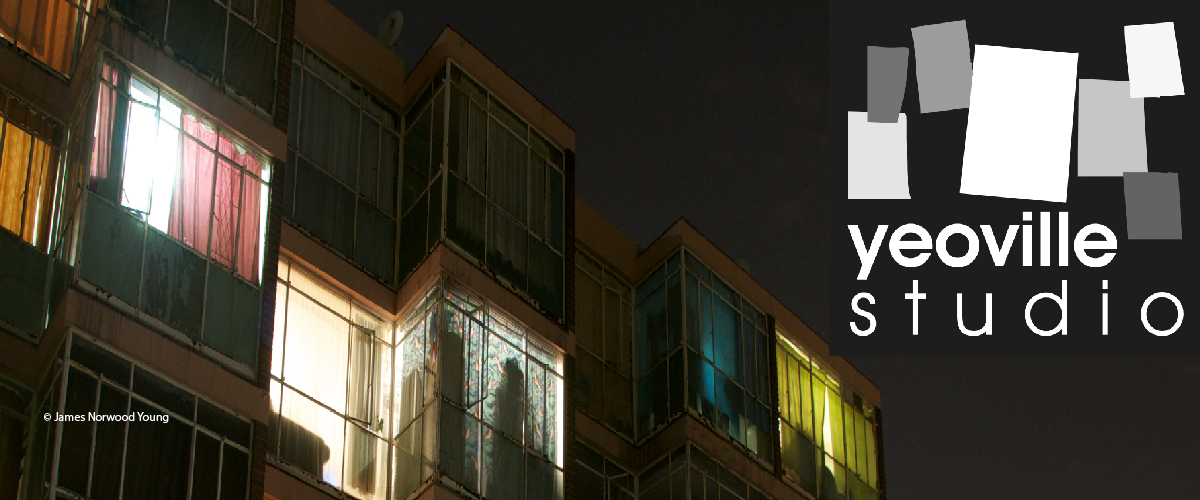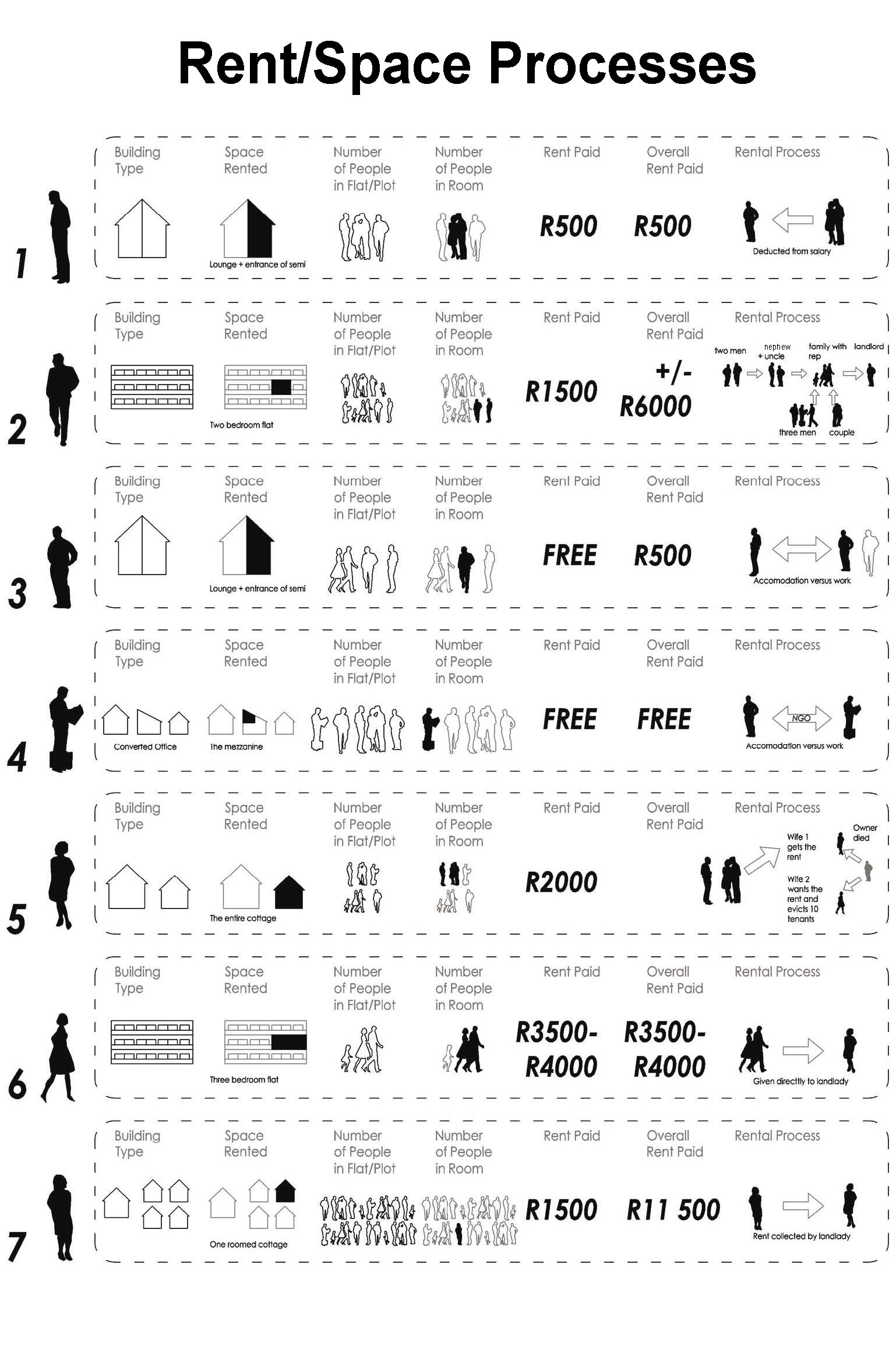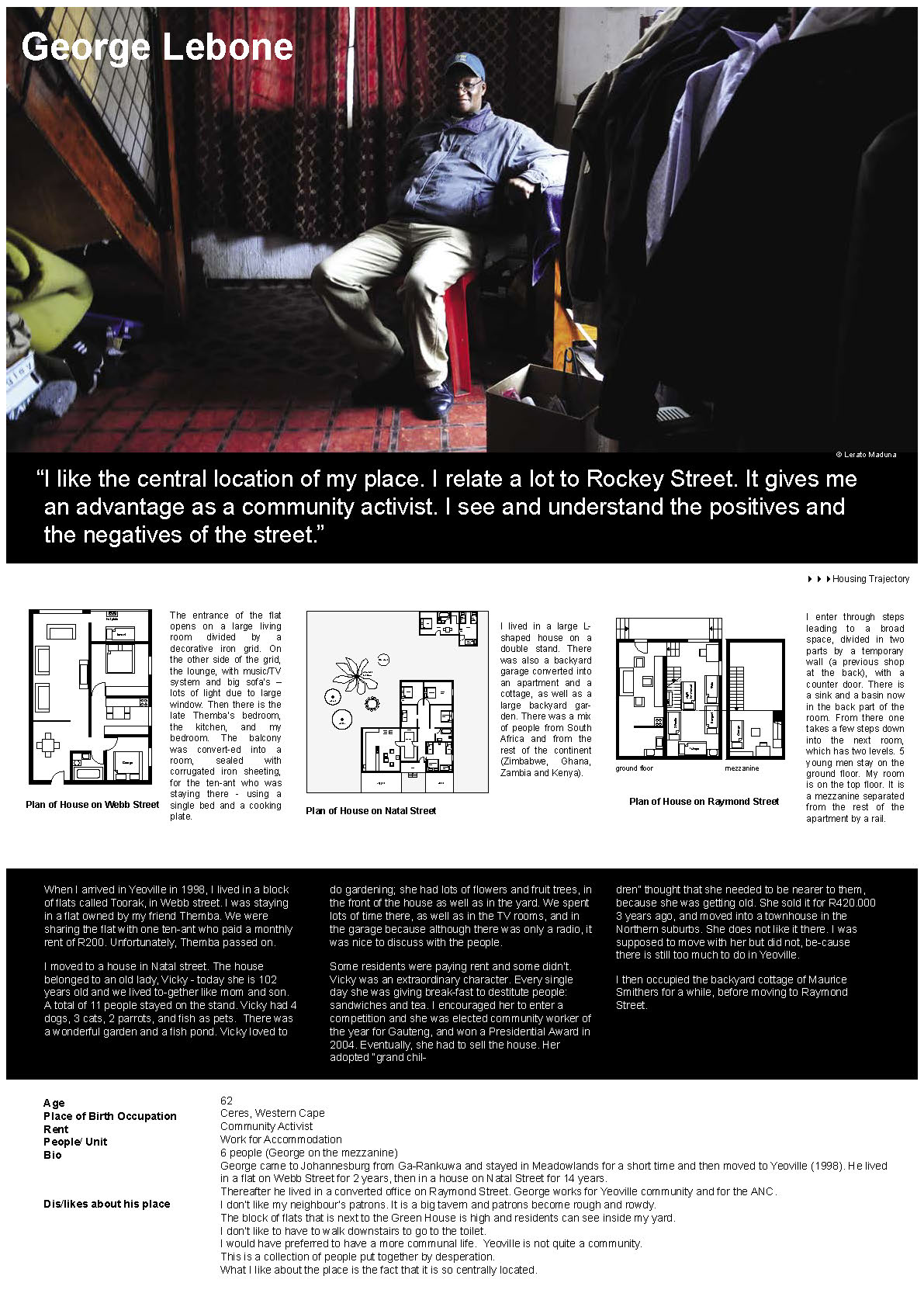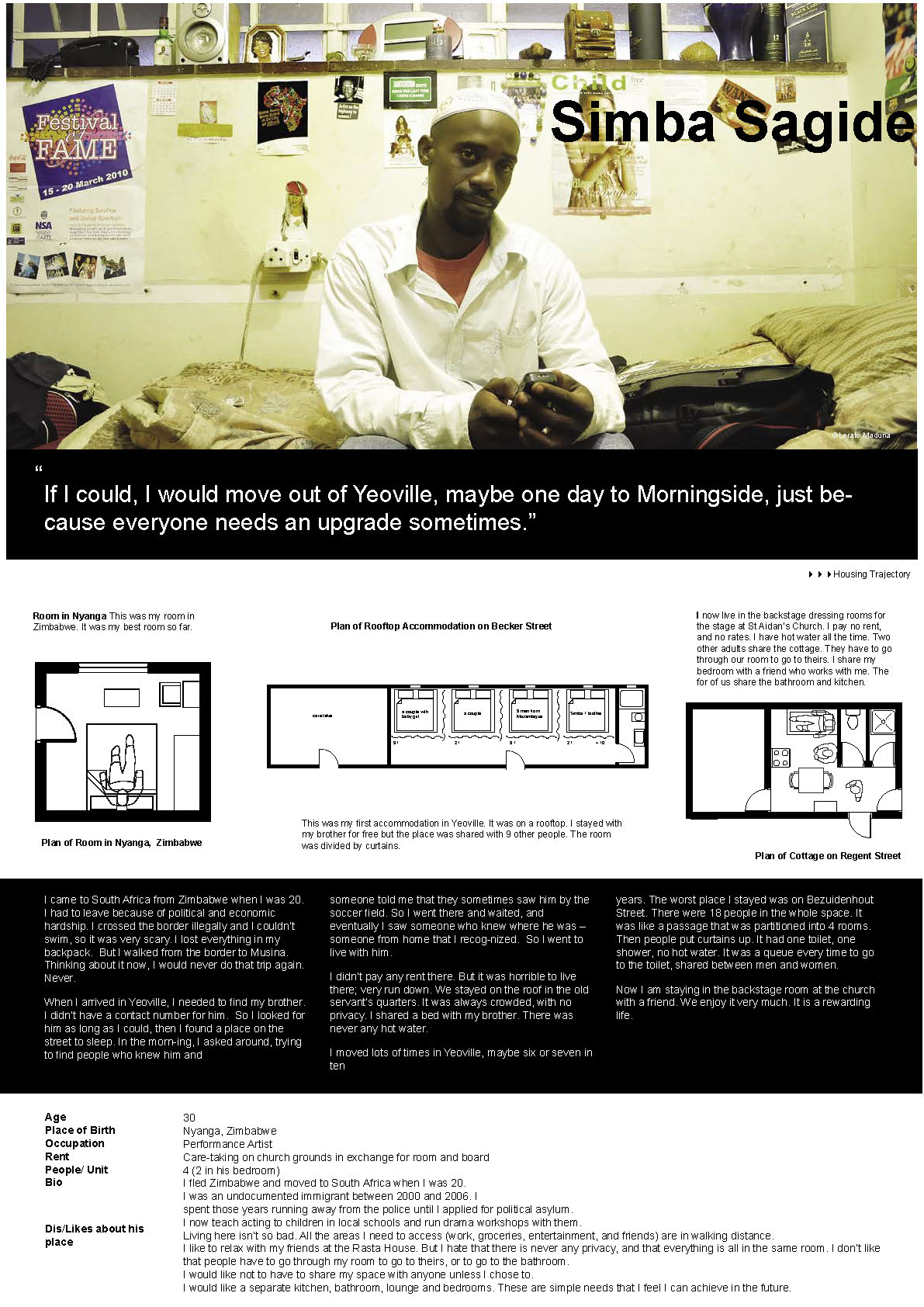
MY PLACE IN YEOVILLE
One of the objectives of the Yeoville Studio was to understand the housing realities of Yeoville's reisdents. In 2010, students hosted an exhibition at the Yeoville library, based on the stories they had collected, entitled My Place in Yeoville.
The housing stories were collected through a workshop involving Yeoville residents and students and staff of the Wits School of Architecture and Planning, held at St Aidans Church, on 29 March 2010. The objective of the workshop was to understand how Yeovillites live - in order to propose spaces that can accommodate both private and community concerns. Through very basic means (a rectangle cut in a paper sheet, figuring the scale of a bed), it was possible for residents to draw the placed in which they have lived in Yeoville, as well as the places they might like to live in the future. The drawing process elicited very rich narratives on housing conditions and trajectories and the social networks mobilised or created through the housing process.
The students then took the drawings and converted them into architectural conventions. Residents were also given a disposable camera and asked to take photos of their space. The Studio then commissionned professional photographer and resident of Yeoville, Lerato Maduna, to create portraits of each participant. The stories, captured in the form of a poster, was then read, amended and consolidated together with each participant, before being exhibited in various public events in Yeoville and beyond.
Some of the lessons students took away from this research include:
Mobility is high in Yeoville - one is able to find accommodation for free - at least for some time. Participants of this workshop moved on average, once a year, but sometimes stayed only a few months in one place.
Rent levels can be low – between R500 and R1500 on average, if one is willing to accept difficult housing conditions, This level of affordability has not yet been provided by municipal or public housing that in general, aims at rents of about or above R1000. On the other hand, ‘slum-lording’ constitutes the private provision of affordable rent (R500-R1000) in Yeoville. This often takes the form of overcrowded buildings. Although planning, building, providing and managing decent housing with shared facilities, at an affordable price, has started in some pilot projects in Johannesburg, they remain exceptional cases.
In Yeoville you can find places for free, for some time. It helps in periods of crisis. Yeoville provides many temporary housing solutions to new arrivals to the City, or to people who might be going through a personal crisis (family, health or job), at least until he/she finds his/her ground. Therefore, one can often rely on dense charity and social networks that provide accommodation, even if the standards of such accommodation might be low.
Moving is often a response to a bad relationship between the landlord and tenant. Nevertheless, tenants can find alternative accommodation fairly quickly. However, this frequent relocation has its costs: it constrains the consolidation of tenants’ rights. The rights and duties of both landlords and tenants are unregulated and the lease agreements are informal. Therefore, this relationship between tenant and landlord tends to depend on personalities - which often leads to the abuse of rights. Although landlords in Yeoville might provide affordable housing options for such a mobile population –landlords may also exer- cise economic exploitation over tenants, by charging exorbitant rents for small, unsafe, and overcrowded accommodation e.g. A two bedroom flat that is rented out to 10 adults and 2 children, for a total of R6000/month; or a house with 4 rooms rented to several families and individuals that brings an overall rental income of R11.500. Landlords are able to impose a range of obligations on tenants: vacating their homes after only a few days’ notice; prohibiting the use of a heater in the middle of winter and requesting un- reasonable domestic chores from tenants. However, the fact that other housing solutions are so readily available in Yeoville makes moving out an easier response to these abuses - rather than fighting for rights such as Notice for Eviction or in other cases Reasonable Repartition for Chores.
A diverse, affordable rental system is important – it is highly adaptable to constant changes in family size and revenue flow. Moving allows for changes in family size, structure and revenue, in a time when waged labour is increasingly uncommon and economic cycles condition income flow. Renting also provides highly flexible housing solutions to non- waged workers, in a context where the rental offer is wide.
Residents design ‘solutions’ to share spaces with others on a daily basis and manage over-crowding on a micro-level. However, this is not without negotiation and tensions. Private spaces (bedroom or bathroom) become collective spaces and collective spaces (living rooms, corridors, and staircases) are appropriated for private use. Furthermore, loss of personal belongings, fear for personal safety, the lack of privacy, noise, poor management of the en vironment and the impossibility of having guests or visitors, are some of the consequences of overcrowding. Therefore, most residents long for privacy, ‘my own bedroom’, and rooms with designated and separate functions.
As a Yeoville resident put it: 'Everyone needs an upgrade sometime’. Most participants have improved their housing conditions over time. Nevertheless, crises do alter this path. The bottom end of the housing trajectory would consist of sleeping in spaces not meant and not equipped for residential use (basement storeroom, the street, on the floor etc); or sharing spaces to such a degree that there is no room for privacy nor easy access to basic amenities. In some cases, core families stabilize over time and residents tend to desire more privacy i.e. Sharing with relatives or friends instead of complete strangers; or finding a place suited for a nuclear family an extended family.
A project facilitated by Kirsten Doermann, Mpho Matsipa and Claire Bénit-Gbaffou





